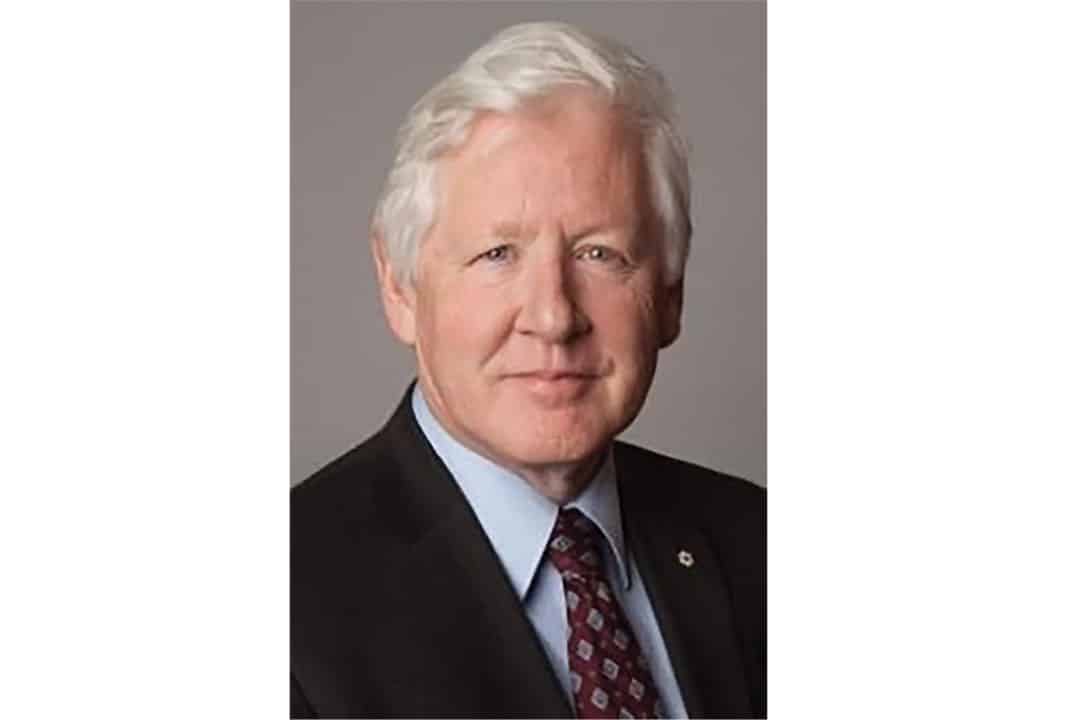In a ceremony on September 6, Victoria College awarded an honourary doctorate to Bob Rae, Canada’s Ambassador to the United Nations (UN), for his service to Canada domestically and internationally.
In a September 1 press release, President and Vice-Chancellor of Victoria College Rhonda McEwen expanded on the college’s decision to award Rae a doctorate. McEwen explained that Rae “exemplifies the intellectual rigour and passion for shaping [the] world” that Victoria College strives for.
McEwen added, “In conferring an [honourary doctorate], we recognize Mr. Rae’s exemplary service to community and extraordinary commitment to social justice and education.”
In a written statement to The Varsity, Rae wrote, “[Receiving the honourary doctorate] is especially meaningful to me because of my time in the VicOne program as the Ann and David Wilson Professor of Public Policy… I thank Victoria University for the great honor bestowed on me.”
Rae graduated from University College in 1969 with a degree in modern history. He was awarded the Rhodes Scholarship — a scholarship for exemplary international students — from the University of Oxford, where he completed a master of philosophy in 1971.
Rae returned to U of T in 1977 and obtained a law degree from the Faculty of Law.
After completing his studies, Rae transitioned to a career in politics. He was elected to provincial and federal parliaments 11 times between 1978 and 2013. He served as the premier of Ontario from 1990 to 1995 and as the interim leader of the Liberal Party of Canada from 2011 to 2013.
In 2013, Rae stepped away from politics and announced that he would be serving as the lead negotiator for the Matawa First Nations Tribal Council — a council of nine First Nations located in northern Ontario — in their negotiations with the province of Ontario over the Ring of Fire area. The Ring of Fire is a region in northern Ontario rich in mineral deposits.
While the province and mining companies have been planning to exploit the region’s resources since the initial discovery of the deposits in 2007, various First Nations in the region have concerns regarding mining in the region. Some Nations support the prospects of additional jobs and development in the area through mining, but others worry about environmental consequences that the mining project may have on the peatlands, the terrestrial ecosystem that makes up the Ring of Fire. While the exact implications of mining in the peatlands are not yet known — as studies assessing the effects of mining on the land are still underway — the Nations suggest that mining on the land is likely to disturb the peatlands.
Rae has advocated for funding from the provincial government to address the social and economic concerns of the First Nations in the region.
In 2013, Rae also began working in academia. Rae spent time as an instructor and fellow at U of T’s Faculty of Law and taught at Victoria College.
In 2017, Rae returned to politics in a diplomatic role. The government of Canada appointed Rae as the Special Envoy to Myanmar to advise the Canadian government on the Rohingya crisis. Since 2017, the Myanmar military has been involved in the deaths and displacement of thousands of Rohingya Muslims, an ethnic minority in Myanmar. As the Special Envoy, Rae wrote a report outlining the context of the crisis in order to help inform Canada’s approach.
In 2020, the government of Canada appointed Rae as the Canadian Ambassador to the UN. Through this role, Rae has called for action to investigate the Uyghur genocide in China and has remained vocal about the Russian invasion of Ukraine.
Apart from the honourary doctorate that Victoria College granted him, Rae was named a Companion of the Order of Canada — the highest civilian award in Canada, which is presented to individuals who have undertaken exemplary service for Canada and humanity — and a Member of the Order of Ontario, the highest civilian award for service to the province.


